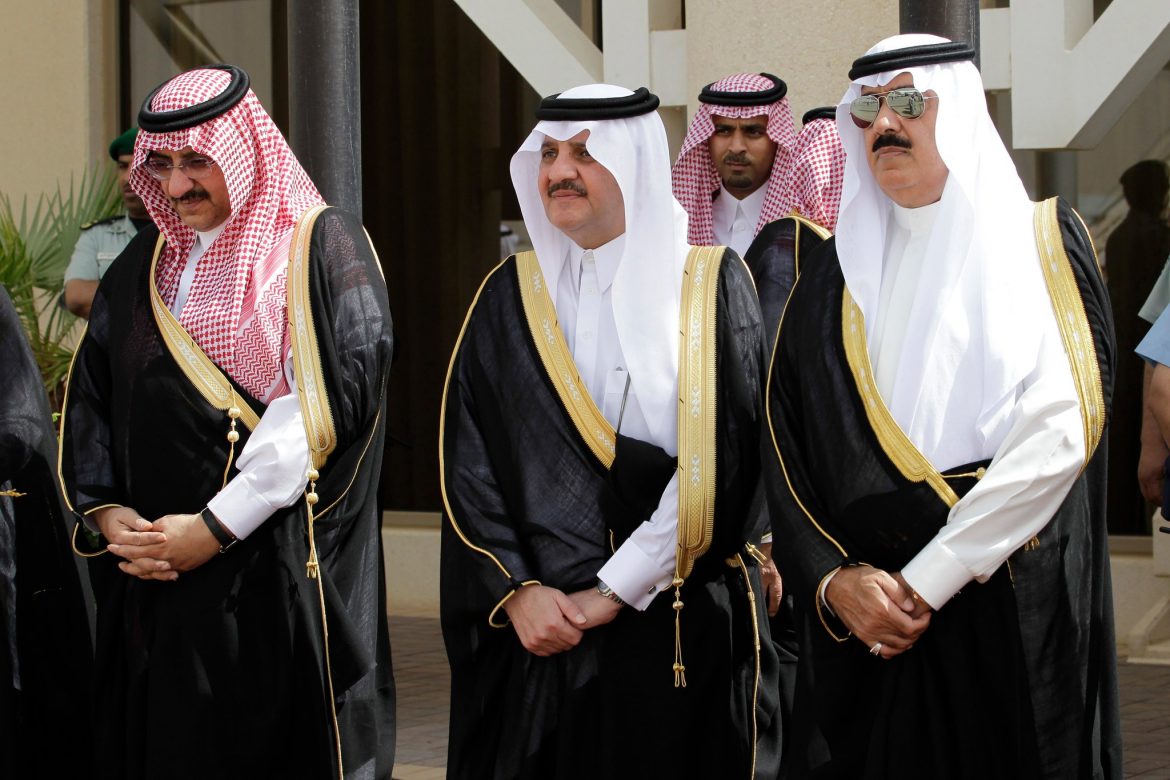This material belongs to: The New York Times.
LONDON — Saudi Arabia has released Prince Mutaib bin Abdullah, the most influential of the hundreds of businessmen and current or former officials detained three weeks ago in an anti-corruption crackdown, an associate of the royal family and an American official tracking the events each said Tuesday.
The release of Prince Mutaib, who had been held along with the others in a five-star Ritz-Carlton hotel in Riyadh, is a sign that the officials leading the crackdown are moving expeditiously to resolve some of the claims. But the kingdom has disclosed almost nothing about the charges against any of the detainees or about any settlement talks with them, so final outcomes, including in the case of Prince Mutaib, may be difficult to discern.
It could not be immediately determined if the prince, 65, was now able to move freely; it was more likely that he had been transferred to some form of house arrest, the American official said. It also could not be determined if he had surrendered any assets in exchange for his provisional release, or whether his assets remained frozen.
A son of the deceased Saudi monarch King Abdullah, Prince Mutaib was once considered a contender for the throne. Until a few hours before his arrest he had controlled one of the three main Saudi armed forces, the national guard. His detention brought the national guard, as well as the internal security forces and the military, all under the effective control of his cousin, Crown Prince Mohammed bin Salman, 32, who is the favored son of King Salman, 81.
Unlike any of the others detained in the Ritz during the crackdown, Prince Mutaib was also subjected to a coordinated social media campaign accusing him of corruption and self-enrichment as head of the national guard. The campaign appeared to be orchestrated by the crown prince or his allies, potentially in another effort to reduce the threat of any challenge by Prince Mutaib to the shake-up.
Crown Prince Mohammed is leading the crackdown. He heads a special anti-corruption committee created by a decree from his father hours before the arrests that has been granted the authority to detain any individual and confiscate any assets at its discretion.
Saudi officials and outside analysts close to the royal family have said that a primary goal of the arrests is to recover hundreds of billions of dollars in ill-gotten gains accumulated by the targets of the crackdown. Officials working with Crown Prince Mohammed are pressing detainees to sign over assets in exchange for their freedom, in that way avoiding any judicial process. Many assets are held in jurisdictions like New York, London or Zurich, and “plea agreements,” as the Saudis are describing asset forfeitures, could also obviate the difficulty of persuading Western jurisdictions to recognize the legitimacy of a Saudi court verdict.
The removal and arrest of Prince Mutaib this month followed a similar blow in June against Prince Mohammed bin Nayef, 58, another cousin and contender for the throne who until then had been both crown prince and minister of the interior. King Salman removed both those titles to make Mohammed bin Salman the crown prince.
King Salman and Crown Prince Mohammed appeared to be taking no chances, setting the stage for their subsequent crackdown. Security forces under the direction of the king and his son initially placed Prince Mohammed bin Nayef under house arrest, evidently to ensure that he did not use his influence with the internal security forces to resist the consolidation of power. In an extraordinary departure from the previous norms for the treatment of a senior royal, a campaign of anonymous statements to the news media and over social media was launched against him, apparently to justify his removal and replacement, and it prefigured the recent campaign against Prince Mutaib. The campaign against Prince Mohammed bin Nayef alleged that he was addicted to drugs, including painkillers and cocaine.
When Prince Mohammed bin Nayef appeared in public this month at a family funeral, American officials took his freedom of movement as a positive sign for the stability of the kingdom. The officials believed the two cousins — Prince Mohammed bin Nayef and Crown Prince Mohammed bin Salman — had reached an accommodation.
An online video from the funeral captured many public expressions of loyalty to the former crown prince, but the following day his assets were frozen as part of the crackdown.
The American official tracking the situation said Tuesday that other low-level detainees had also been released and as many as 600 bank accounts of dependents of the detained had been unfrozen.


